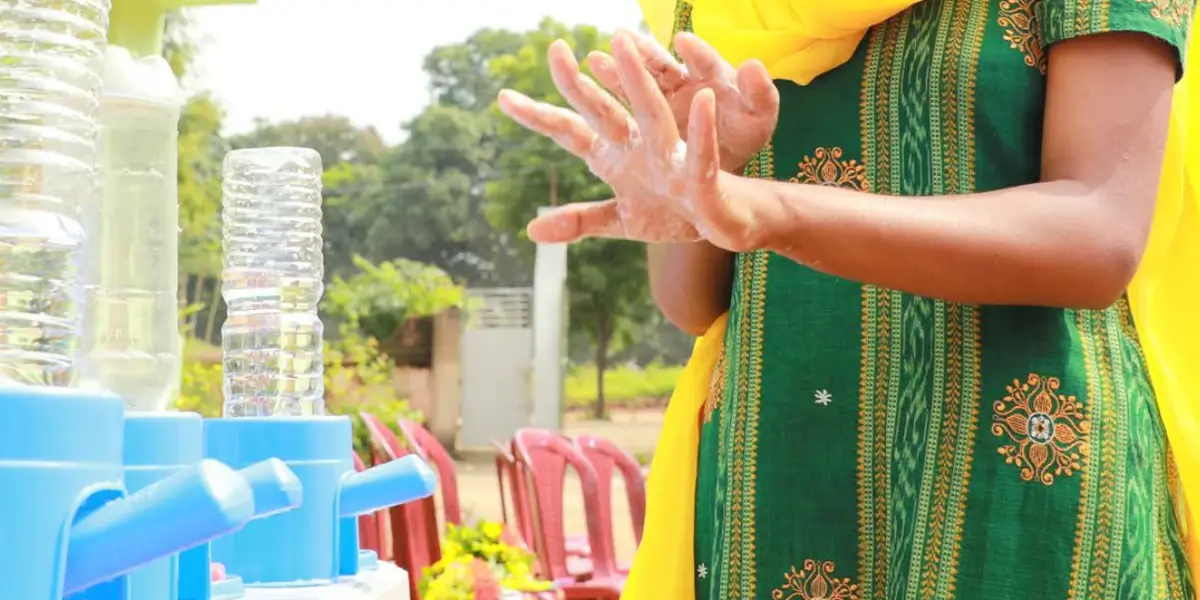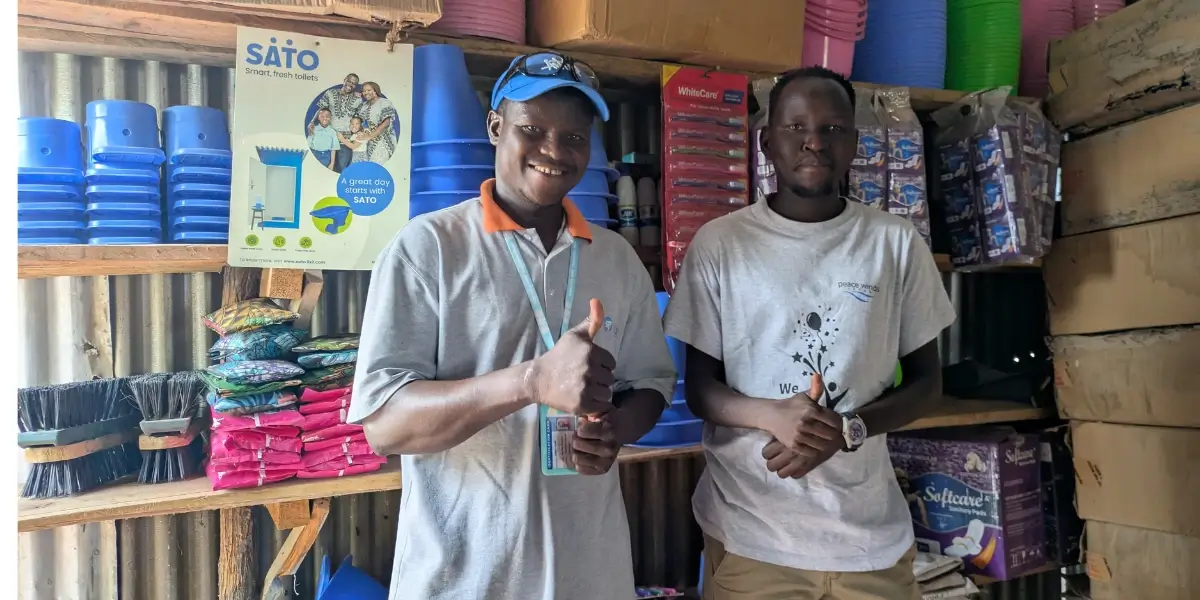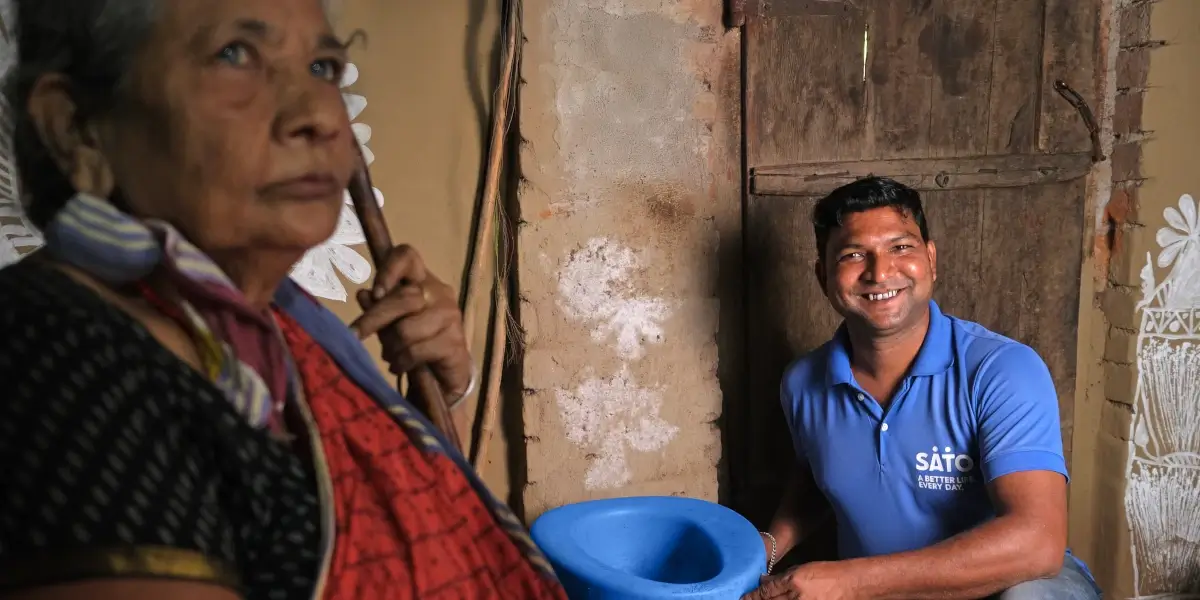
Make A Splash!

LIXIL & UNICEF ‘Make a Splash!’ partnership: improving lives through access to sanitation and hygiene
Jason Cardosi, Leader, Partnerships and Market Insights
Building on more than five years of success, our ‘Make a Splash!’ partnership with UNICEF, extended to 2027, will create new opportunities to expand safe sanitation and hygiene access for consumers across Asia and Africa.
Over the next three years, we will build on the results Make a Splash! achieved, having already impacted 12.7 million people globally. But the impact goes beyond just the headline number. Make a Splash! has enabled us to gain really valuable insights about how we build sanitation markets, supply chains, and public-private collaboration, and much, much more.
Below, we explore the five key learnings from Make a Splash!, which will help shape the next chapter of our partnership.
Inclusive Market Growth
Many sanitation markets around the globe do not work well for low-income consumers. Affordable and appealing sanitation solutions are limited. For some, even if a toilet and installers are readily available, cash flow priorities can deter families from prioritising investments in sanitation.
From the outset, Make a Splash! leveraged UNICEF’s extensive reach and demand activities and LIXIL’s technology and commercial expertise. SATO products, including Pans, Stool, and Taps, were designed to meet the specific needs of low-income households, making safe sanitation and hygiene a reality for millions. Meanwhile, our focus on addressing market barriers has been critical for enabling more and more consumers to access the solutions of their choice.
The impact has been significant. Since its inception, the Make a Splash! partnership has enabled 12.7 million people across diverse geographies, including Ethiopia, Kenya, Tanzania, India, Indonesia, and Nigeria, to gain access to better sanitation and hygiene.
Public-Private Promotion
Developing demand-creation strategies to support government goals is critical to
strengthening sanitation markets for the long term. In Tanzania, Make a Splash! partnership worked with local government administrations, artisans, and WASH entrepreneurs to act as distributors and retailers, ensuring that SATO products were available where they were needed most. This model of engaging stakeholders has proven to be highly effective within the communities. By working with these actors and helping them to meet their needs, the partnership has ensured the sustainability of sanitation improvements, with artisans and entrepreneurs continuing to provide essential services long after initial interventions.
Access to Supply Chains
Sanitation and hygiene supply chains can be fragmented in many markets. This problem disproportionately impacts rural consumers, who may have to travel further to purchase a toilet or live without local masons for installation and aftercare services. From the outset, we knew that we needed to better connect consumers to sanitation supply chains by focusing on the last-mile link—for instance, incentivizing local stockists and masons in and near communities.
In Nigeria, the distribution of SATO products through toilet business owners (TBOs) has not only provided sanitation solutions to people but also created new economic opportunities.
The establishment of one-stop sanitation shops by the TBOs has enhanced the availability and promotion of these vital products, ensuring that communities can easily access sanitation solutions that will create meaningful change in their lives.
Public and Commercial Financing
The success of the Make a Splash! partnership can, in part, be attributed to its innovative approach to financing. Various mechanisms have been introduced to support sanitation improvements, including financing options for TBOs in Nigeria, funded by state governments to help expand their businesses and improve working capital. This support has been crucial in enabling low-income communities to afford the sanitation products and services they need and want.. Combining supply and demand with enterprise finance is a promising approach. The work of Make a Splash! facilitating loans to TBOs in Nigeria is a perfect example of this.
Optimising Sanitation Market Regulations
Finally, in some markets, policies, strategies, guidelines, or laws are the main market barriers. Over time, Make a Splash! partnership countries have deepened their understanding of how policies, guidelines, or bylaws support or inhibit sanitation market processes and outputs. These efforts can be categorised into three types of intervention – ‘supporting an enabler’, ‘removing a policy blocker’, and ‘sustaining a gain’.
Most Make a Splash! experiences fall into the ‘supporting an enabler’ category. This supports the creation or revision of a policy, strategy, law or guideline, enabling an inclusive and efficient sanitation market. For example, India supported a state government to develop a finance and retrofitting strategy, which was not only useful for planning but also helped to persuade other government agencies to provide credit lines for self-help groups for sanitation.
Looking Ahead
The lessons learned over the past five years are as valuable as the partnership’s tangible impact on people’s lives. Looking ahead, the Make a Splash! partnership will continue to build on these insights and on five market dimensions: supply, demand, financing, enabling environment, and sales. Expanding financial mechanisms will be a key focus, as will enhanced community engagement to generate sustainable local support structures. Promoting tax exemptions for sanitation products and developing national guidelines for faecal sludge management are also practical actions that can help sanitation and hygiene programmes succeed anywhere.
The Make a Splash! partnership has demonstrated the impact that innovative, collaborative efforts can have on global sanitation access and well-being for people everywhere. Through the provision of affordable, effective sanitation solutions and the development of sustainable sanitation markets, this partnership has transformed lives and created a blueprint for future success. With the lessons learned and applied, we believe the Make a Splash! partnership will continue changing lives for millions around the world.
WANT TO STAY UP TO DATE?
Subscribe to our newsletter to stay on top of the latest news, views, and stories from on the ground.
The easiest way to do this is to sign-up for our LinkedIn newsletter here. We'll then send you a bi-monthly letter from our Leader, Erin McCusker.

Similar articles
While global in scope our stories are local at heart.



 Copyright © LIXIL 2026
Copyright © LIXIL 2026